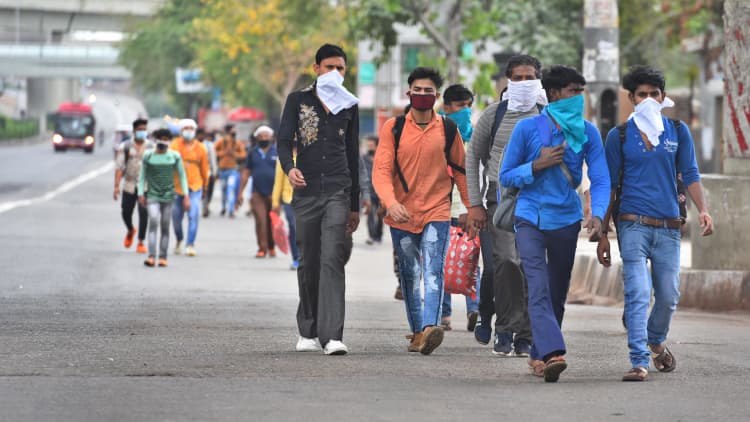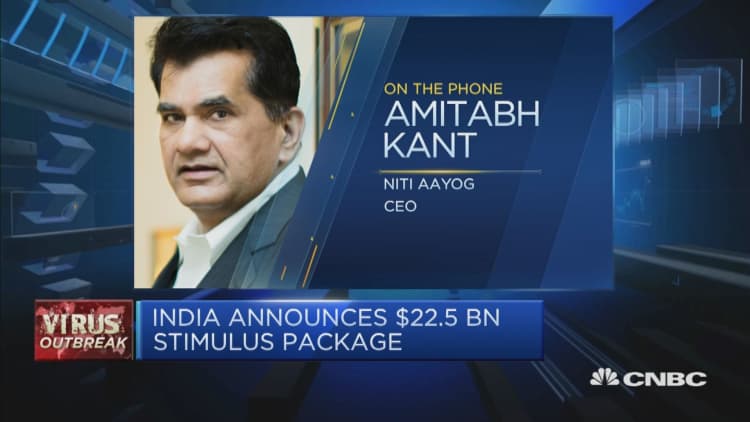
India is adding more resources to tackle its increase in coronavirus cases by announcing that private hospitals may be requisitioned to help treat virus patients, and turning railway cars and a motor racing circuit into makeshift quarantine facilities.
The steps were taken after a nationwide lockdown announced last week by Prime Minister Narendra Modi led to a mass exodus of migrant workers from cities to their villages, often on foot and without food and water, raising fears that the virus may have reached to the countryside, where health care facilities are limited.
Indian health officials have confirmed more than 1,000 cases of the coronavirus, including 29 deaths.
Experts say that local spreading is inevitable in a country where tens of millions of people live in dense urban areas with irregular access to clean water, and that the exodus of the migrants will burden the already strained health system.
As India's under-resourced health care system prepares to confront a wave of coronavirus cases, some state governments have asked liquor factories and breweries to produce liquid sanitizer after the initial supply failed to match demand. Designers, nonprofit groups and prisoners in various jails have stepped up to help overcome shortages of masks and other personal protective equipment.
India has less than one medical doctor and three nurses per thousand people, the minimum recommended by the World Health Organization. The dominant share of India's doctors and beds are in the private health care sector, which the country's poor often cannot afford.
"India's big city hospitals are well equipped to deal with the surge in virus cases," said public health expert T. Sundararaman. "But the same can't be said about district hospitals in rural areas, barring some exceptions in states that fare well when it comes to health care."
On Monday, the Indian Council of Medical Research, India's top medical research body, said the country had conducted 38,442 tests for the virus as of March 29. India has a population of 1.3 billion people.
The governments of the states of Uttarakhand, Chhattisgarh, Rajasthan and Madhya Pradesh have announced in the past few days that intensive care units, ventilators and staff of private hospitals might be requisitioned to treat virus patients.
Joining the fight against the virus, New Delhi's top hospital, the All India Institute of Medical Sciences, said it is converting its trauma center into a coronavirus hospital, the Press Trust of India news agency reported. The Buddh International Circuit, India's first Formula One racing track, was being readied for use as a shelter and quarantine facility, officials said.


